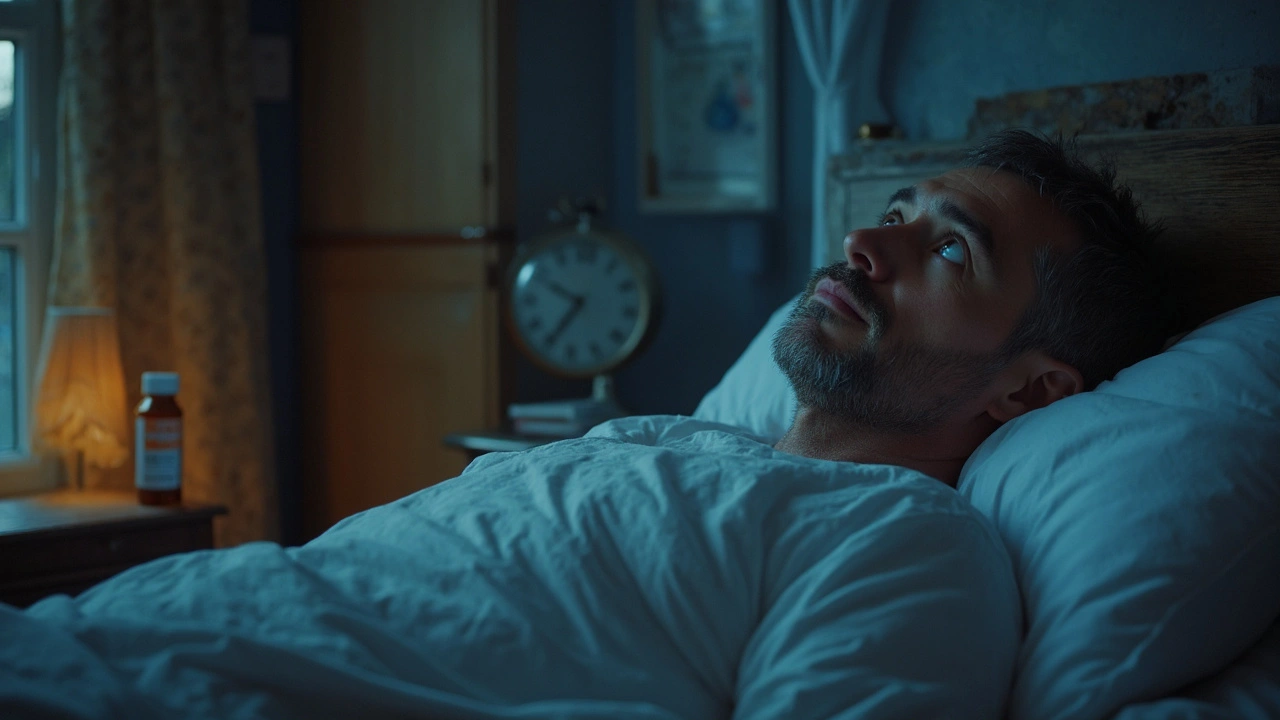REM Sleep and Statins: Could Your Cholesterol Pill Be Changing How You Dream?
Waking up from a strange, vivid dream or feeling unusually tired despite sleeping through the night can be unsettling. Some people on statins report changes like vivid dreams, nightmares, or trouble falling into deep REM sleep. It doesn’t happen to everyone, but if you’ve noticed new sleep issues after starting a statin, that’s worth a closer look.
How statins might affect REM sleep
Statins lower cholesterol by blocking an enzyme in the liver, but some types—especially lipophilic ones like simvastatin and atorvastatin—can enter the brain more easily. A few small studies and case reports suggest these drugs can alter sleep patterns for some people, possibly by affecting neurotransmitters that regulate REM sleep and dreaming. Other factors matter too: age, other medications, caffeine, alcohol, and mental health all influence REM sleep, so it’s often a mix of things rather than one single cause.
What to watch for and what to do
If you suspect your statin is changing your sleep, start by tracking what’s happening. Note when you take the medication, what you ate or drank, bedtime routines, and how you feel the next day. Bring that info to your clinician. Practical steps your doctor might suggest include switching the time of day you take the statin, trying a different statin that’s less likely to cross into the brain (hydrophilic options like pravastatin or rosuvastatin are examples), or lowering the dose if it's safe to do so.
Don’t stop the medication on your own. Stopping statins abruptly can raise your cardiovascular risk. If sleep problems are severe, your clinician can weigh the benefits and risks and may offer alternatives—different statin, non-statin cholesterol drugs, or lifestyle-first approaches (diet, exercise, and weight management).
Also consider basic sleep hygiene: keep a regular sleep schedule, limit screens before bed, cut late caffeine and alcohol, and create a calm bedroom environment. If vivid dreams or insomnia continue despite these changes and a medication review, ask about a sleep study or referral to a sleep specialist. Sometimes treating a coexisting issue like anxiety, sleep apnea, or another drug interaction clears things up.
Bottom line: sleep changes while on statins are possible but not guaranteed. Track your symptoms, talk honestly with your prescriber, and don’t stop treatment without professional advice. With a few simple changes and a good conversation with your doctor, you can usually find a plan that protects your heart without wrecking your nights.
Need quick questions to bring to your appointment? Try: “When did my sleep change relative to starting this drug?”, “Could a different statin reduce brain effects?”, and “What are non-drug options to manage my cholesterol?” Those three questions open a useful, practical conversation.

Do Statins Affect Sleep? The Truth About Statins and Sleep Quality
Statins help lower cholesterol, but do they affect your sleep? This article digs deep into the science and real-life experiences around statins and sleep quality. You'll learn about their impact on REM cycles, why some people struggle with insomnia or daytime tiredness, and tips for managing these issues. Get practical advice and find out where to read more on coping with statin-related sleep problems.
